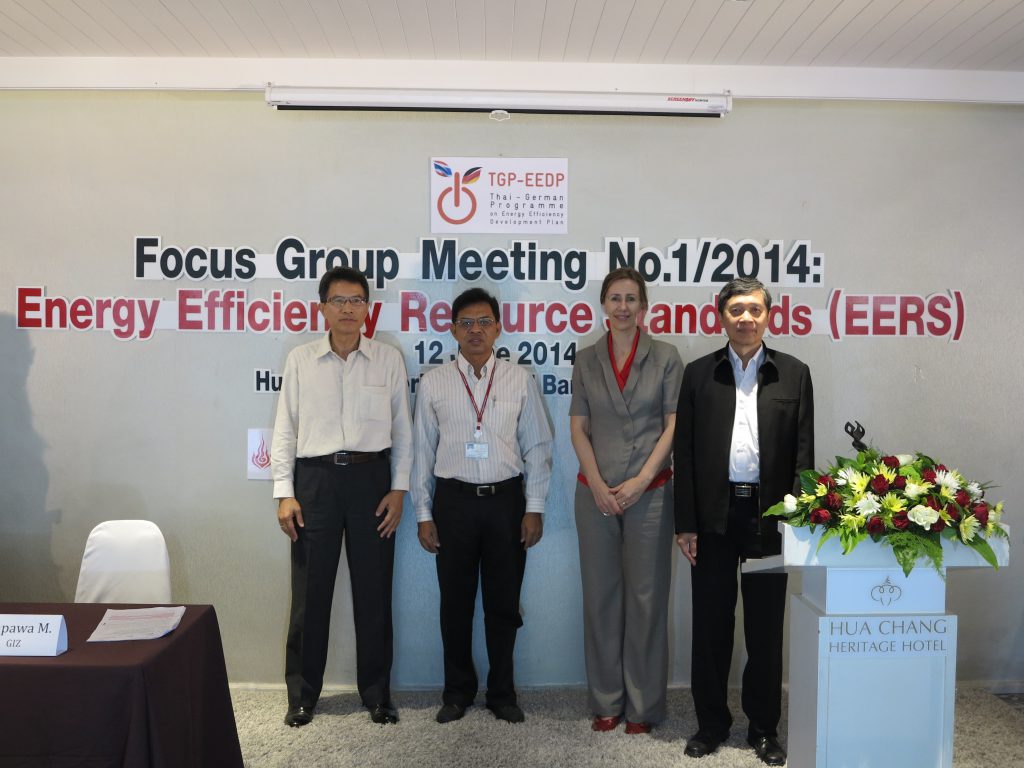In 2010, the Energy Policy and Planning (EPPO), assigned by the Ministry of Energy, has formulated the long term 20-year Energy Efficiency Development Plan (EEDP) which aims to reduce energy intensity (energy consumption/GDP) by 25% (compared with that in 2010), or equivalent to the reduction of final energy consumption by nearly one-quarter (23.5%) in 2030. An important measure of the EEDP is to implement Energy Efficiency Resource Standards (EERS) for large-scale energy e.g. those in the electricity, oil and natural gas industries will be required to implement energy conservation measures to encourage their customers to reduce energy use by a specified minimum standard. Actually many countries around the world have implemented EERS schemes on a national or regional but sometimes in different terms basically describing the same type of policy instrument e.g. “Energy Saving Obligation”, “Energy Efficiency Portfolio Standard” or “Energy Supplier/Distributor Obligation”.
On Thursday 12th June 2014, the TGP-EEDP project organized “Focus Group Meeting No. 1/2014: Energy Efficiency Resource Standards (EERS)” in order to discuss possible design options for EERS in Thailand among representatives from energy-related government agencies and utilities, as well as qualified experts.
- To gain common understanding of EERS measure and the importance of EERS to the energy conservation in Thailand
- To share perspectives and challenges of EERS implementation in Thailand
- To discuss possible design options for EERS in Thailand and basic categories of EERS design such as obligated parties and eligible energy saving etc.
Documents to be downloaded:
